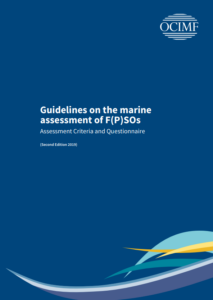OCIMF published the second edition of its Guidelines on the Marine Assessment of F(P)SOs. The new guidelines establish a framework for assessing the marine sections of Floating (Production) Storage and Offloading (F(P)SO) facilities, in order to comply with international legislation and industry best practice.
What is more, they can supplement any other internal assessments an F(P)SO operating company might conduct as part of its auditing process.
The publication includes 12 questionnaires, along with the relevant guidance, which cover a different part of F(P)SO. They relate to marine interfaces and what their relation is with areas such as topside production, turret mooring, subsea systems, hydrocarbon offtake systems, pilots, support craft operators and local authorities.
Commenting on the new guidelines, OCIMF Director Rob Drysdale said that, it addresses the full range of marine activities associated with F(P)SO operations. Additionally, it can help assessors judge how far an operation complies with the appropriate legislation and accepted best practice. The ultimate objective is to ensure the safe, effective and efficient operation of these facilities.
Guidelines for assessment
FPSO assessments must be conducted by independent assessors, along with at least one representative of the FPSO. The scope of the assessment is focused on marine activities and the assessor has to be experienced and have at least one of the following:
- Lead auditor training;
- A marine qualification;
- FPSO or other Floating Offshore Installation service in a senior rank;
- Supervisory/management experience in a similar type of facility.
Pre-assessment activities
Assessors should familiarize with all available information about the FPSO before the visit.
To help the FPSO prepare for the assessment, the assessor should give the FPSO a copy of the assessment guidelines and a clearly defined scope so that they have a clear understanding of the assessment process.
Conducting the assessment
The assessment should start with an opening meeting to brief the FPSO’s management and operating supervisors on the process. It is important to agree on the assessment schedule and on the FPSO personnel that will be available.
The assessment process begins after the opening meeting. Observations should be made with enough detail to enable sound judgements and assessment.
Reporting
The assessment should end with a meeting with the local management and operating supervisors, during which the assessor will present the findings before writing the final report.
In addition, a full assessment report should be prepared for the FPSO management team’s consideration and guidance, within an agreed timeframe.
You may explore more in the PDF herebelow































































